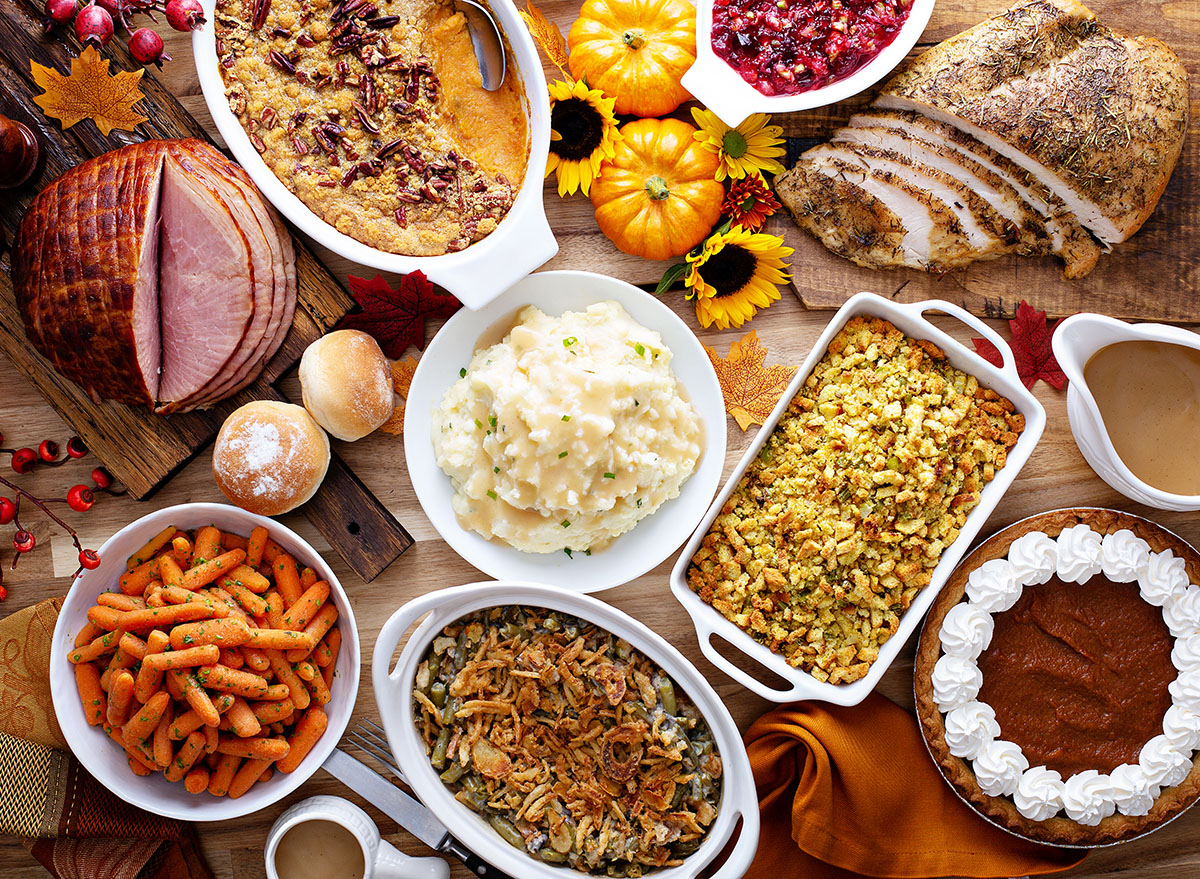The Easiest Trick to Avoid Overeating This Thanksgiving

Psychologists have long understood that we eat when we're under emotional stress. No wonder we've put on the "Covid 15." No wonder we overeat at the Thanksgiving table. What's more stressful than having to eat with extended family…wearing masks? It's times like these that many of us reach for the closest bag of chips or cookies and don't stop munching until we hit crumbs.
"We often overeat, not because we're hungry, but because we want the delicious food to soothe away an unpleasant feeling," says a researcher who has studied the phenomenon, Jennifer Daubenmier, PhD, Assistant Professor at the Osher Center for Integrative Medicine at the University of California, San Francisco. And the real harm, she says, may come later from the shame we feel over our behavior, which can trigger overeating to spiral out of control. (Related: 15 Classic American Desserts That Deserve a Comeback.)
So, how does one overcome the power of a table of holiday dishes taunting "how many are you going to add to your plate?" The answer may lie in practicing what's called "mindful eating," a technique that helps you to recognize the signals your body gives you when hungry or distractions that cause you to overindulge.
In a recent study of obese adults led by Dr. Daubenmier, 100 volunteers were taught mindfulness-based stress reduction techniques like meditation, yoga, and mindful eating drills designed to empower them to stall mindless overeating. The results, reported in a recent issue of the journal Obesity, showed that women who experienced the greatest reduction in stress levels from these mindfulness techniques also had the greatest loss of visceral belly fat, the deep, most dangerous fat that forms around internal organs in the abdomen. At the end of the 18-month experiment, the mindful eaters also experienced improvements in fasting blood sugar, the ratio of HDL cholesterol to triglycerides, and a reduction in the percentage of their daily calories that came from candy, cakes and sugary beverages.
"If you can train yourself to recognize the reasons for overeating, what you're feeling before you act, you have a greater chance of making a wiser decision," says Daubenmier, explaining the goal of mindful eating.
How to do it? Daubenmier suggests slowing the eating process down to a crawl, eating like a gourmet food critic, focusing on smell, taste, texture, and taking breathes in between each bite to contemplate the sensations. By slowing down and taking time to become more aware of your food, your hunger level, and the emotions that may be causing you to eat, you give yourself the power to control cravings.
Developing a skill for mindful eating is easier if you team it up with daily mindful meditation practice. Daubenmier recommends practicing meditation 25 minutes, six days a week. You can read books on how to meditate, or make it as simple as sitting in a comfortable chair, closing your eyes and focusing your attention on your breath. Breathe deeply, allowing your belly to rise before your chest does. On the exhale, allow the chest to fall before your belly does. If your mind begins to wander, simply bring your attention back to your breathing. Noticing your mind wandering is actually proof that you're doing it right and already becoming more aware, more mindful, of your body.
For more healthy eating news, make sure to sign up for our newsletter!








